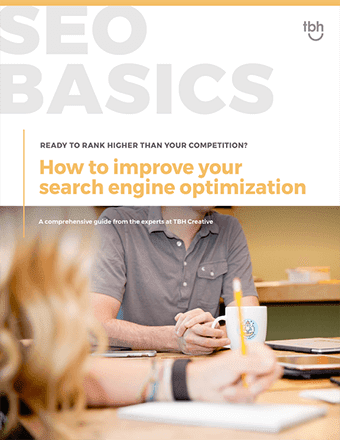Upon hearing the term search engine optimization (SEO), everything from keyword research, keyword optimization, and long-tail keywords to technical SEO, real-time keywords, and more might come to mind. Then, there are issues like keyword variations—such as using the singular vs. plural, alternate words with the same meaning, or even misspellings—that might come into play.
But, SEO encompasses all of those things and so much more.
Since keywords play a big part in any SEO strategy, it can be frustrating when it feels like the rules are always changing. Creating a robust, comprehensive SEO strategy beyond just simple keyword planning can help you stay ahead and capture more search traffic.
Do keywords have to be exact in 2020?
No.
Google now uses smart algorithms to match related terms based on user intent. Search is smart enough to serve the same content for related terms and alternate spellings, even when not an exact match query.
For example, you no longer need to spell out “search engine optimization” versus using “SEO” in your content because Google treats the terms as interchangeable on SERPs. However, if an acronym you want to use has multiple meanings (and especially if the one you want to use isn’t the most popular), you’ll benefit from using the full version for clarity.
Google’s October 2019 organic search query matching update
In part driven by an increase in voice searches, Google rolled out new search query matching models that use keywords, synonyms, misspellings, and even phrase order to determine the best matches.
“We might not know the right words to use, or how to spell something because, oftentimes, we come to Google’s Search looking to learn. … At its core, Google’s Search is about understanding language. It’s our job to figure out what you’re searching for and surface helpful information from the web, no matter how you spell or combine the words in your query.”—Getting to Great Matches in Google Search (Apr 2020)
After Google adjusted “exact match,” some companies saw a boost in impressions for keyword variations, such as alternate spellings, without adjusting the keywords in their content. This is good!
However, with all these new impressions on non-optimized content, some saw their click-through-rate (CTR) go down.
Create an SEO strategy that includes keyword planning
Keywords are still important, and having a keyword strategy is also a great asset, but keywords alone will not suffice to optimize traffic to your website or in your marketing.
Ready to create a plan to improve your SEO? Get a copy of TBH Creative’s complete guide to improving SEO rankings. Our guide addresses technical SEO, link building, reporting, and more because finding success with search engine optimization demands more than just keywords.

Use this tool to start planning a new website that will drive long-term digital marketing success.
Exact match vs. keywords with matching user intent
When thinking about SEO before 2020, marketing keyword strategies often incorporated alternate spellings, singular and plural versions, and other various considerations to optimize for exact match keywords. The exact match concept is just as it sounds: the page content and what the user types into the search bar must exactly match.
Digging in a bit deeper, this meant many people developed keyword strategies that included singular and plural variations in the content, titles, and links on the page. If users searched for the singular or plural versions, your content might have been more optimized to appear for one or the other. You might have ranked higher for the singular or the plural version of the term.
The October 2019 update Google (mentioned above) made changed all of that. Google’s developers revealed that their algorithms are now more sophisticated, so whether the user searched for the singular or plural version of a keyword, your content would still be a keyword match for their query.
How have search results changed? We can use a faux marketing target for TBH Creative as a simplified example—
Keyword matching user intent example: SEO vs. search engine optimization
While TBH Creative works with clients all over the country, we do have target audiences in Indiana, where our headquarters are located. We might have run a campaign or target keyword variations for Indiana SEO and Indiana search engine optimization in the past.
In pre-2019 strategies, we would have carefully used both variations in the event some users typed it one way and others typed the other.
With the move away from an exact match, the Google Keyword Planner no longer shows separate traffic estimates or competition for these variations but groups them together with one set of results:

Armed with this information, our content writers could use either variation or incorporate both without trying to stuff additional versions into the content. As our organic traffic source grew for this sample campaign, we should see similar ranking and clicks for either variation of this term.
Bonus tip: No keyword stuffing allowed
In the early days of SEO, keyword stuffing in meta descriptions or image alt tags maybe have been an okay strategy. Still, search engines got smarter, which is now a ding-able offense, actually hurting your search rank rather than helping it.
Today’s organic search has evolved into a smart tool that prioritizes useful content that enhances the user’s search experience. Keywords are still a big factor in the equation, and keyword planning remains a vital piece of a marketing strategy to get your content in front of users via organic search.

